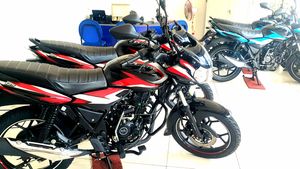How to Spot an Accident Bike

Buying a used bike can save you a lot of money, but it’s crucial to ensure you’re not purchasing a bike that’s been in an accident. Identifying an accident bike requires a keen eye for detail and some basic knowledge. Here’s a guide to help you spot an accident bike and make an informed decision.
Inspect the Frame
The frame is the backbone of any bike, and a thorough inspection can reveal signs of past damage. Look for welding marks, which can indicate that the frame has been repaired. These marks might be more visible under the seat or around the engine mount points, where structural repairs are often made. Check for cracks, especially at stress points such as the steering head, engine mounts, and swingarm pivots. Cracks can compromise the bike’s integrity and are a clear sign of previous accidents.
Additionally, be vigilant about paint inconsistencies. Fresh paint or an uneven paint job can be a sign of repair work. Compare the paint in less visible areas, like under the fuel tank or seat, with the more visible parts. Discrepancies in paint color or texture can indicate that the bike has undergone repairs.
Check the Wheels and Tires
Wheels and tires are critical components that can reveal a lot about a bike’s history. Look for rim damage such as bends, cracks, or dents. Spin the wheels and observe for any wobbling, which could indicate that the wheel is bent or misaligned due to an accident. Uneven tire wear is another red flag, suggesting alignment issues that may have resulted from a crash. Inspect the tires closely for patterns of wear; tires worn more on one side could signal a misalignment problem. Make sure the tires are in good condition overall, as excessive wear might also indicate harsh riding conditions or neglect.
Examine the Fork and Suspension
The fork and suspension system often bear the brunt of an accident’s impact. Look for any bends, scratches, or oil leaks, which are signs of damage. Test the suspension by pressing down on the bike; it should return smoothly and without any unusual noises. A faulty suspension can affect the bike’s handling and comfort, making it unsafe to ride. Additionally, check the alignment of the front fork. If the fork tubes are not parallel, it could indicate a previous crash. Look for any signs of repair, such as new bolts or mismatched parts, which can also suggest that the bike has been involved in an accident.
Look for Scratches and Dents
Superficial scratches and dents can tell a lot about a bike’s history. While minor scratches are common, extensive damage, especially on the exhaust, handlebars, and footpegs, can indicate a previous accident. Examine the exhaust for dents or scratches, as it often gets damaged during a fall. Check the handlebars for signs of bending or misalignment, which can affect the bike’s handling. Footpegs and levers should also be checked for damage or signs of replacement. Replaced or heavily damaged parts can suggest that the bike has been in an accident and undergone repairs.
Verify the Alignment
Take the bike for a test ride to verify its alignment and handling. If the bike pulls to one side or the handlebars seem misaligned, it could be a sign of frame damage. Proper alignment is crucial for safe riding, as misalignment can affect the bike’s stability and control. Pay attention to how the bike handles during the ride; any unusual vibrations or noises can also indicate underlying issues. If the bike doesn’t ride straight or feels unstable, it’s best to avoid purchasing it.
Inspect the Engine and Exhaust
Check the engine and exhaust system for any unusual noises, leaks, or signs of repair. Listen for any knocking or ticking sounds from the engine, which can indicate internal damage. Look for oil leaks around the engine and exhaust, as these can be signs of previous damage or poor maintenance. Inspect the exhaust for any dents, scratches, or signs of replacement. An accident can cause internal damage that’s not immediately visible, so it’s important to pay close attention to these details. If you’re unsure about the engine’s condition, consider having a professional mechanic inspect it.
Review the Bike’s History
Obtaining the bike’s history report can provide valuable information about its past. This report can reveal any recorded accidents and repairs, helping you make an informed decision. In Sri Lanka, you can check with local authorities or online services that provide vehicle history. The history report can also indicate if the bike has been stolen or written off by an insurance company. Having access to this information can give you peace of mind and prevent you from buying a bike with a problematic history.
Consult a Mechanic
If you’re unsure about your findings, consult a trusted mechanic. A professional assessment can provide a more detailed evaluation of the bike’s condition. Mechanics have the expertise to identify subtle signs of damage that you might overlook. They can also test ride the bike and check for any issues with the frame, engine, and suspension. Investing in a mechanic’s evaluation can save you from potential problems and ensure you’re making a safe purchase.
Spotting an accident bike requires attention to detail and a bit of investigative work. By following these steps, you can avoid potential pitfalls and ensure you’re investing in a safe and reliable bike. Always take your time and don’t hesitate to seek professional help if needed. This guide aims to provide practical advice for anyone in Sri Lanka looking to buy a used bike, ensuring safety and reliability in their purchase.
Similar Advices



















 MEMBER
MEMBER 



